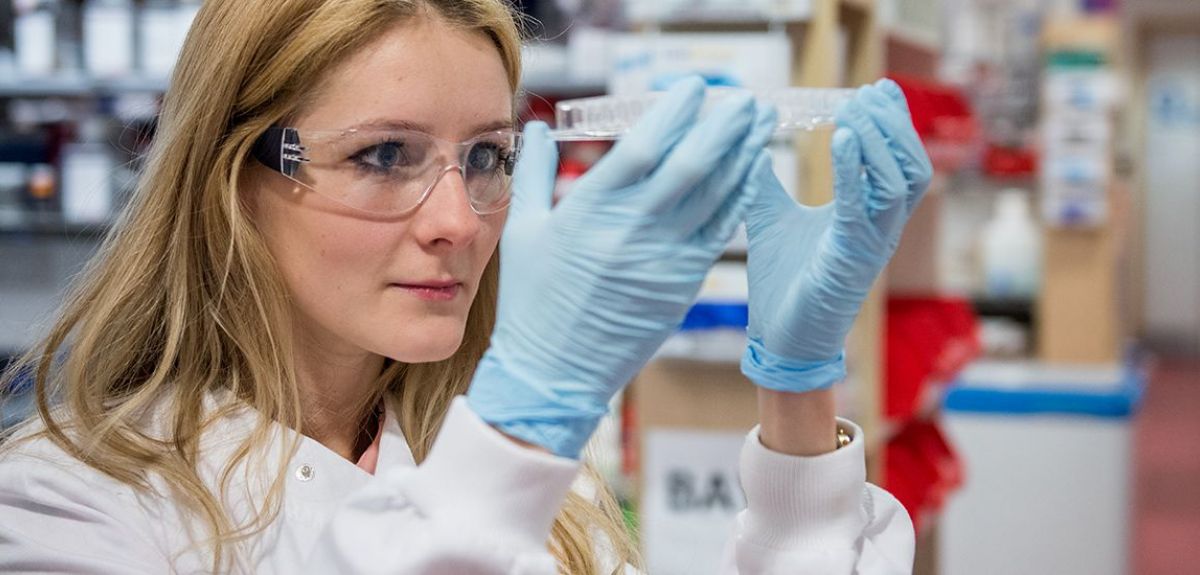
John Cairns
Slashing research funding is a blow to Global Britain
The Government will do long-term damage if it reduces support for the UK’s university research base.
The Covid-19 pandemic has demonstrated the power of publicly-funded research in tackling the biggest global health crisis of the past century. The strength of the response by universities has underlined the country’s genuine claim to be a global research superpower delivering real-world benefits to society. That is why, like the Government, we are committed to leveraging that advantage and growing a “Global Britain”, and to a country which is levelled-up. Universities are powerful allies in helping to deliver these goals.
That said, the scale, immediacy and impact of the announced and potential cuts to UK research budgets, amounting to over £1 billion, will undermine years of investment in our universities and put our research base at risk, not to mention our international reputation. Indeed, there is a real likelihood of the Government’s claims of “Global Britain” ringing hollow.
Within the UK, no other sector of the economy can claim to have five of the top 20 institutions in the world. This bench-strength has not come about by accident, but from sustained funding, support and investment. Universities have shown we can and do deliver for society and the economy, but we can’t and we won’t if we are subject to swingeing cuts to research budgets.
The first cut was announced in the Budget with the reduction of the international development budget. The consequence is a £120 million cut to research programmes, representing 40 to 60 per cent of development-funded research activity, with serious real-world effects. Researchers will have to stop programmes in developing countries aimed at tackling malaria and infectious diseases with pandemic potential, enhancing food security, reducing violence towards children, improving maternal health, and building renewable energy sources. This work does not just benefit the developing world but all of us.
Like other universities, we were delighted that the Government secured Associate Status to the EU’s Horizon programme. Now we learn that there is a real threat to the Government’s commitment to fund the cost of being part of the programme. The cost of participation in Horizon may be taken from the UK Research and Innovation budget. If UKRI, the Government body responsible for awarding research grants, is left with a shortfall of £1 billion, the consequences for British science and innovation will be nothing short of calamitous.
The work of our outstanding researchers, much of it funded by UKRI, has put the UK into a position of international competitiveness in key areas, including quantum computation that offers the promise of accelerated materials and drug discovery; low carbon technologies to support the Government’s binding pledge to net zero carbon; and a new generation of antibiotics to meet accelerating global anti-microbial resistance. Universities UK, the body which represents all higher education institutions, has also estimated that a cut of this scale could jeopardise 18,000 researchers’ jobs.
World-leading research cannot just be turned on and off like a tap. Once our highly trained young researchers leave our universities they will not come back, and once they leave the country they will not return. We appreciate that the Treasury faces enormously difficult choices but we would plead with them not to do long term economic damage by cutting support for our research base. We know that every £1 invested in university research generates further private sector investment of £1.60, creating the jobs, products and services that drive growth.
We are calling on Government not to renege on its commitments to spend 2.4 per cent of GNP on R&D by 2027 and to support publicly funded research. In particular we are calling on the Government not to fund participation in Horizon Europe by raiding the budgets of UKRI. Our research universities, together with UKRI, other funders and business, have created a national research and innovation system that is the envy of the world. Our R&D activity can be one of the best routes to “building back better” from the economic ravages wrought by the pandemic, and with Government support, we can be at the centre of that great national effort.
By Louise Richardson, Vice-Chancellor of the University of Oxford, and Stephen J Toope, Vice-Chancellor of the University of Cambridge
This article appeared in the Daily Telegraph on 19 March 2021
 New study estimates NHS England spends 3% of its primary and secondary care budget on the health impacts of temperature
New study estimates NHS England spends 3% of its primary and secondary care budget on the health impacts of temperature
 International collaboration launches largest-ever therapeutics trial for patients hospitalised with dengue
International collaboration launches largest-ever therapeutics trial for patients hospitalised with dengue
 Oxford-built multi-agent assistant for cancer care to be piloted in collaboration with Microsoft
Oxford-built multi-agent assistant for cancer care to be piloted in collaboration with Microsoft
 World's first Phase II Nipah virus vaccine trial launch
World's first Phase II Nipah virus vaccine trial launch